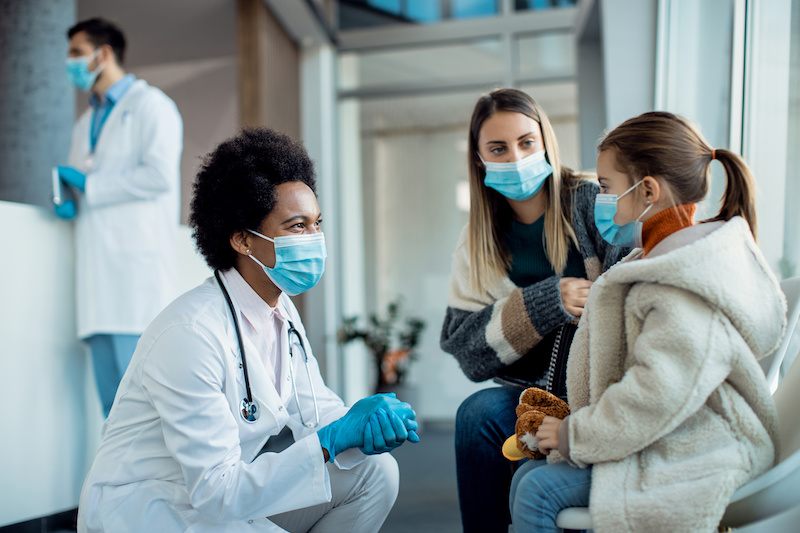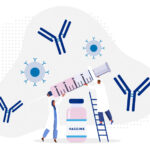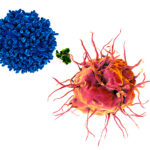HPV vaccine: What families should know

Nearly 80 million Americans are currently infected with human papillomavirus (HPV). For most, HPV goes away on its own. If it doesn’t, it can lead to certain cancers. HPV can be transmitted sexually or by nonpenetrative skin-to-skin contact. Often, HPV does not have signs or symptoms, so you can have and spread HPV without even knowing it.
Vaccination offers prevention
Fortunately, the HPV vaccine can protect your child against certain types of HPV before they are exposed to the virus. The earlier they are vaccinated, the better, so it provides the greatest degree of protection for the longest period of time. Although vaccinations can start as early as age 9, experts at the Center for Disease Control and Prevention (CDC) recommend all children, regardless of gender, get vaccinated against HPV at ages 11 or 12 . Children who receive the HPV vaccine before age 15 will need two doses for full protection:
- Dose #1: 11 to 12 years old (or as early as age 9)
- Dose #2: 6 to 12 months after first dose
Those who start the HPV vaccine at age 15 or older will need three doses over a period of 6 months.
HPV vaccines: Understanding the basics
For more insight, we spoke with experts from the Boston Children’s Primary Care Alliance.
Dr. Richard Garber of Framingham Pediatrics acknowledges that some parents are reluctant to talk about the virus. “There is a lot of negative chatter on the internet, partly because the virus can be sexually transmitted, and that brings several connotations into the vaccine and to the virus,” he says. But that shouldn’t keep families from understanding its value. “This vaccine is important because it not only prevents cervical cancer, but also protects against other types of cancers that are becoming more common, including throat, mouth, and rectal cancer.”
There are three different types of HPV vaccines, all of which are licensed by the U.S. Food and Drug Administration (FDA). However, the only HPV vaccine currently distributed in the United States is Gardasil 9. According to the CDC, the HPV vaccine effectively reduces infections and precancers (the abnormal cells on the cervix that can cause cancer). Since 2006, when the vaccine was recommended in the United States, HPV infections and precancers have decreased substantially.
Dr. Jesse Hackell of Pomona Pediatrics, a Boston Children’s Health Physicians practice in New York, explains, “The vaccine is effective against nine of the most common forms of the virus and can prevent over 80 percent of cancers tied to HPV if given prior to exposure to the virus.” It’s important to remember that the vaccine does not protect against all forms of HPV or all forms of cervical cancer. However, it greatly decreases the likelihood of contracting it.
Dr. Garber agrees. “It’s a crucial vaccine, and we have been strong proponents,” he says. “The vaccine is worthwhile and recommended to protect your child.”
The mild side effects of the HPV vaccine include pain or redness where the shot was given, dizziness, nausea, and headache. Evidence indicates that the vaccination is safe, effective, and the protection it offers outweighs the possible side effects.
Contact your Boston Children’s Primary Care Alliance provider about the HPV vaccine.
Related Posts :
-

Building better antibodies, curbing autoimmunity: New insights on B cells
When we’re vaccinated or exposed to an infection, our B cells spring into action, churning out antibodies that are ...
-

Could SIDS be caused by unrecognized brain infections?
Some infants who pass away from sudden infant death syndrome (SIDS) are known to have had acute minor infections. Could ...
-

Exposing a tumor’s antigens to enhance immunotherapy
Successful immunotherapy for cancer involves activating a person’s own T cells to attack the tumor. But some tumors have ...
-

Combining CAR-T cells and inhibitor drugs for high-risk neuroblastoma
Chimeric antigen receptor (CAR)-T cell therapy is a potent emerging weapon against cancer, altering patients’ T cells so they ...





